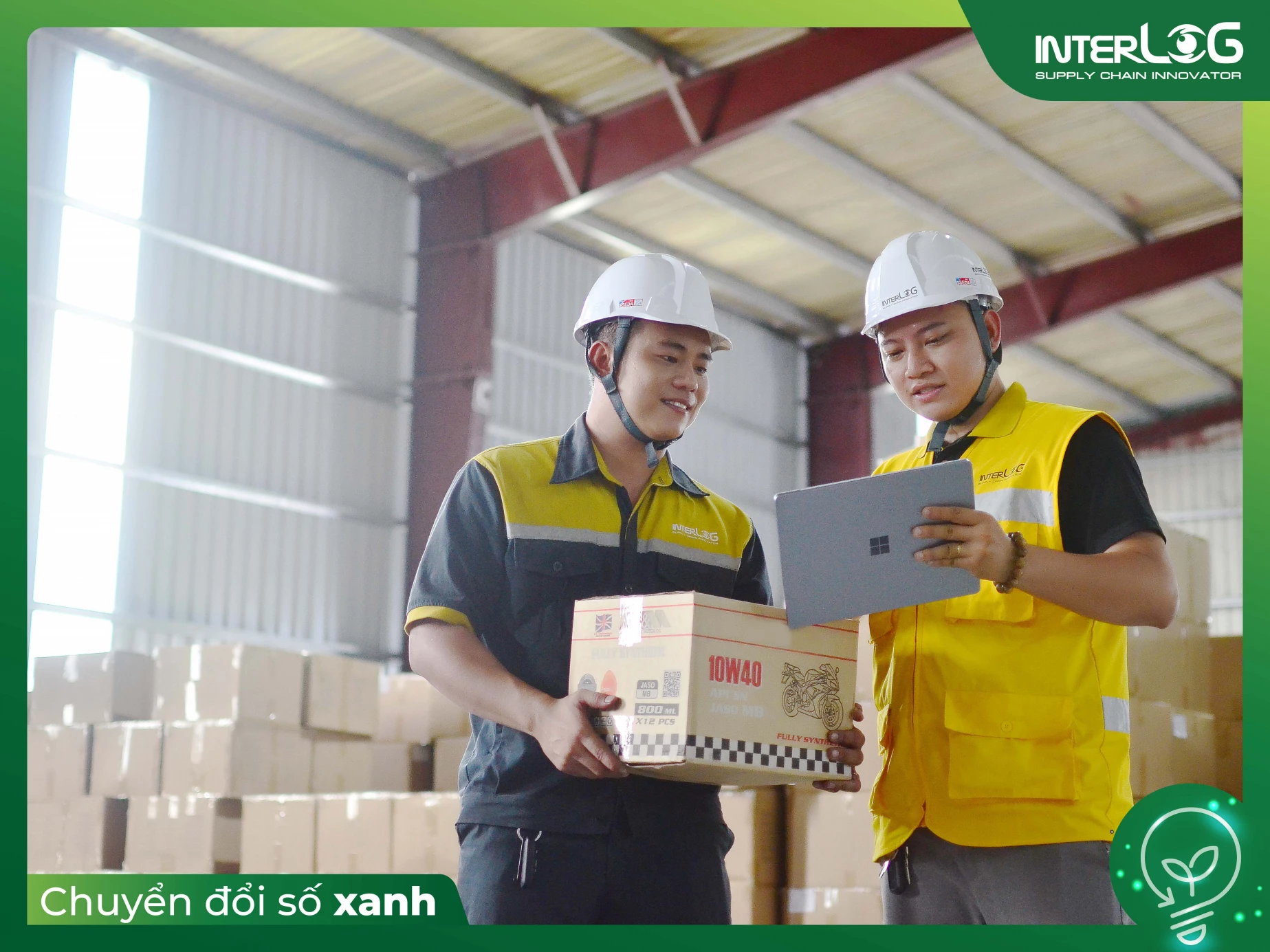


Digital transformation is a catalyst contributing to green transformation for Logistics businesses
Recently, the concept of "Dual transformation," that is, digital transformation to green transformation mentioned by the European Union, is an important trend in the future, especially for the logistics industry. As the environment and resources are increasingly threatened, the logistics industry has had the most significant impact on the environment, accounting for 7% of global emissions. Therefore, applying digital technology and optimizing work processes helps logistics businesses increase productivity, reduce costs, and allow the industry to adapt to green models and sustainable development.

Why are digital and green transformations necessary in the logistics industry?
The logistics industry is vital to the country's economy because it is related to transporting goods, from input materials to finished products. Optimizing logistics activities considerably reduces costs, increases productivity, improves product and service quality, and contributes to the economy's sustainable development. However, logistics activities also consume a lot of energy and resources and cause environmental problems such as paper consumption, emissions, pollution, etc.

Therefore, digital and green transformations in the logistics industry are inevitable. Digital transformation can make data, warehouse, and transportation management more efficient, optimize processes, reduce order processing time, decrease costs, increase productivity, and minimize office paper consumption. Green transformation in logistics is fundamental in minimizing negative environmental impacts, such as reducing emissions and saving resources, while contributing to the industry's sustainable development.
The benefits of data digitization in the logistics industry
Digitizing data and optimizing workflow are effective ways for logistics businesses to increase productivity and reduce costs. According to a PwC report, adopting digital technologies and digital processes can reduce costs by 5-10%, increase productivity by up to 30%, and reduce paper consumption in the office by 10% up to 60%.
Moreover, according to an IBM study, adopting technology in the logistics industry can help reduce transportation costs by up to 20%. From there, digital transformation will help logistics businesses save costs and improve operational accuracy, assisting customers to be more satisfied with service quality.
Optimizing workflow in the logistics industry
McKinsey has shown that optimizing workflow in the logistics industry can increase productivity by 10-30%. This means digital transformation will help logistics businesses improve their work processes, increasing productivity and reducing operating time.

As one of the pioneering innovation logistics enterprises, since 2022, InterLOG Company has been applying digital transformation in many business management and operation activities. One of them, managing warehouses with WMS management software during the trial period, helped InterLOG's Warehouse & Fulfillment Center Unit reduce order processing time (retrieving product data) from 10 to less than 10 minutes. 3 minutes. Thus, digital transformation saves employees time and energy, creates efficiency, and enhances productivity for the entire operation process.
Reduce paper consumption in the office
According to the Ministry of Finance, Vietnam consumes more than 10 million tons of paper each year, of which 2.5 million tons are printing paper. In contrast, using paper in office activities accounts for 50%.
Digital transformation in the logistics industry helps to reduce paper consumption significantly. Using document management software and electronic systems helps businesses avoid dependence on paper while minimizing printing and document storage. In this way, companies not only reduce costs but also contribute to reducing unnecessary waste.
At InterLOG, the company has been implementing the E-Office project, a digital office, to optimize the administration process and digitize office administrative activities since the fourth quarter of 2022. Accordingly, the management of personal records Information, asset management, application, timekeeping, etc., is digitized and integrated on the same platform, increasing work efficiency, reducing physical paper storage space, and cutting down the amount of paper consumable sheets in the office. This can help reduce the amount of waste generated from paper and ink and reduce water and energy consumption in the printing process.

Besides reducing paper consumption, digital transformation also helps InterLOG connect employees at all levels in the company more effectively and proactively.
Thus, Digital Transformation and Green Transformation are becoming important trends in the logistics industry. Digitizing data, optimizing workflow, and reducing paper consumption in the office are effective ways for logistics businesses to increase productivity, reduce costs, and reduce their environmental impact.

In addition, logistics businesses need to promote using the latest technologies to optimize their operations. We can apply blockchain, artificial intelligence (AI), the Internet of Things (IoT), and big data to improve warehouse, transportation, and order management. For example, blockchain can help reduce order processing times, improve data integrity, and ensure information safety in transit.
In addition, increasing training and skill development for employees is also an essential factor in the digital and green transformation process of logistics enterprises. Employees need to be trained to use the latest technologies and ensure the confidentiality of information.
Finally, participating in the logistics industry's digital and green transformation communities can help businesses learn and share experiences with industry partners. This will enable enterprises to make the most of the potential of new technologies and improve their operations, moving towards a green and sustainable model.


